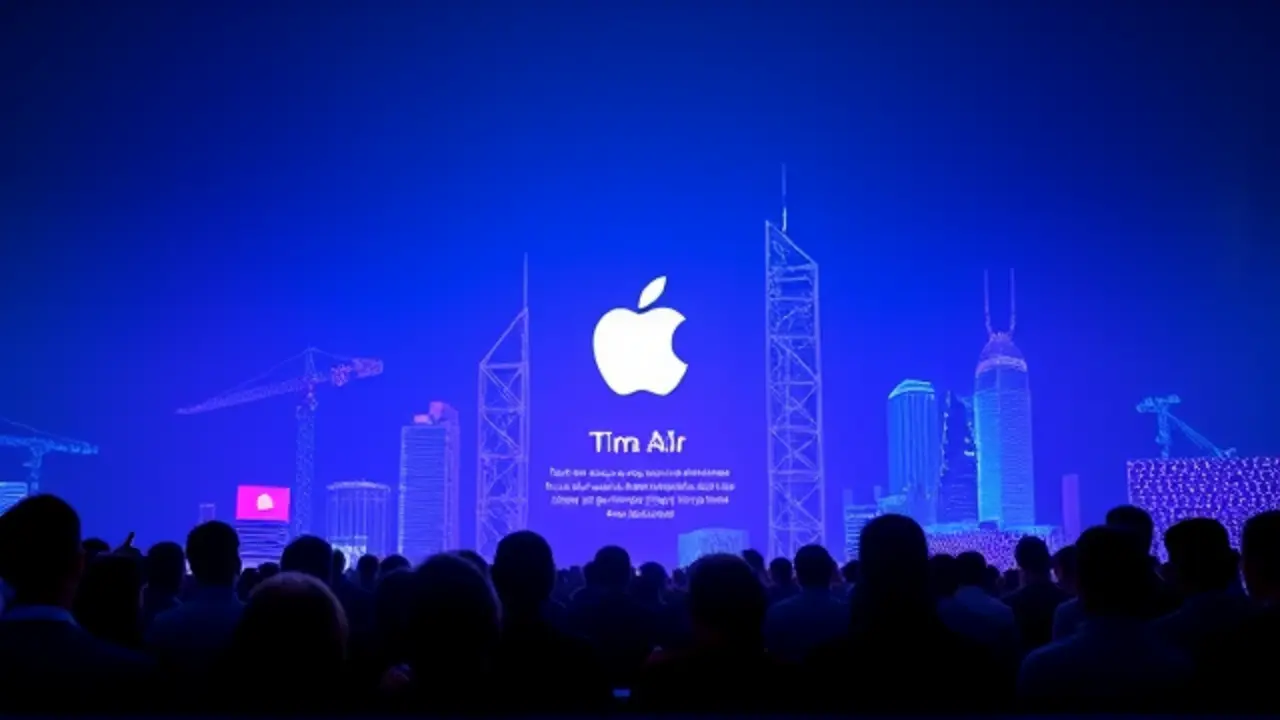Apple CEO Tim Cook promotes iPhone Air launch in China.
Apple CEO Tim Cook’s latest pilgrimage to China wasn't just another corporate roadshow; it was a meticulously orchestrated strategic play in the world's most critical smartphone arena, heralding the mainland launch of the iPhone Air just as the country’s three telecommunications titans—China Mobile, China Unicom, and China Telecom—simultaneously flipped the switch on commercial trials for the eSIM function. This convergence of hardware and regulatory approval is no mere coincidence but a masterclass in corporate-state symbiosis, a dance Apple has been perfecting for years in a market that is both its largest production base and a fiercely competitive sales frontier.The confirmation from all three carriers on Monday, blessed by the Ministry of Industry and Information Technology, provided the perfect regulatory runway for Cook’s prime-time appearance that same evening in a live streaming session on ByteDance's powerhouse platform, Douyin, a move that seamlessly blended high-level policy alignment with grassroots social media marketing. To understand the gravity of this moment, one must look beyond the shiny new device and delve into the long, often tense, relationship between Apple and the Chinese apparatus.The eSIM, or embedded SIM, represents more than just convenience for users wanting to switch carriers without a physical card; in China, it's a matter of digital sovereignty and control. For years, Chinese regulators have been cautious about eSIM technology, wary of its potential to disrupt the carrier ecosystem and complicate user monitoring.Its approval now, timed so perfectly with a major iPhone launch, signals a delicate negotiation and a significant concession, likely secured in exchange for Apple’s continued adherence to local data laws and its massive contribution to the Chinese supply chain. Cook, a diplomat as much as a CEO, has long understood that success in China requires more than just selling products; it requires building bridges.His numerous visits, his public praise for China's innovation and manufacturing prowess, and his careful navigation of geopolitical tensions have all been building blocks for this very moment. The iPhone Air launch, therefore, isn't just about a thinner, lighter phone; it's about embedding Apple deeper into the fabric of China's digital future.The Douyin stream itself is a fascinating case study in localization. By choosing a platform owned by ByteDance, a Chinese champion that has globally challenged Western social media, Apple is demonstrating cultural fluency and a willingness to play by local rules.This isn't an Apple Keynote beamed in from Cupertino; it's an event tailored for the Chinese consumer, on their turf, using their language and their influencers. The broader context, however, is one of immense pressure.Apple faces a resurgent domestic competitor in Huawei, whose Mate series has made significant inroads with patriotic consumers and those impressed by its satellite connectivity and advanced camera systems. The Chinese smartphone market is also plateauing, with consumers holding onto devices longer, making every launch a critical battle for market share.The eSIM functionality could be a key differentiator, appealing to the growing class of frequent travelers and tech-savvy urbanites. But what are the potential consequences? For Chinese consumers, it means greater flexibility and a step towards the global standard of digital SIMs.For the carriers, it's a double-edged sword; they gain a new feature to market with a premium partner, but they also cede some control over the physical point of sale and customer lock-in. For Apple, it’s a crucial win that could help stabilize or even grow its market share, but it also tethers the company even closer to the whims of the Chinese regulatory environment.The long-term play might be in the wearables and services ecosystem. An iPhone Air with eSIM could work more seamlessly with an Apple Watch, pushing users deeper into a walled garden that Chinese tech firms are simultaneously trying to construct around their own services.This launch is a single move in a much larger, multi-dimensional chess game involving trade, technology, and national ambition. It showcases Cook’s enduring belief that engagement, not retreat, is the only path forward, even as the geopolitical winds shift. The success of the iPhone Air in China will be a key indicator of whether that faith is well-placed, a test of brand loyalty against national pride and intense local competition.
Latest News
Silicon Valley Fears AI Investment Bubble May Burst
1 day ago0 comments
Apple CEO Tim Cook promotes iPhone Air launch in China.
5 days ago0 comments
HKEX to Launch New Biotech Index Futures Next Month
5 days ago0 comments
Oura raises $900 million in new funding round.
5 days ago0 comments
Singapore-Johor SEZ Attracts Billions in Cross-Border Investment
5 days ago0 comments
UK labour market shows signs of stabilising after job losses
5 days ago0 comments
Wall Street Rebounds as Trump Softens China Trade Stance
5 days ago0 comments
Goldman Sachs Buys Industry Ventures in $965M Deal
5 days ago0 comments
It’s quiet here...Start the conversation by leaving the first comment.
© 2025 Outpoll Service LTD. All rights reserved.
